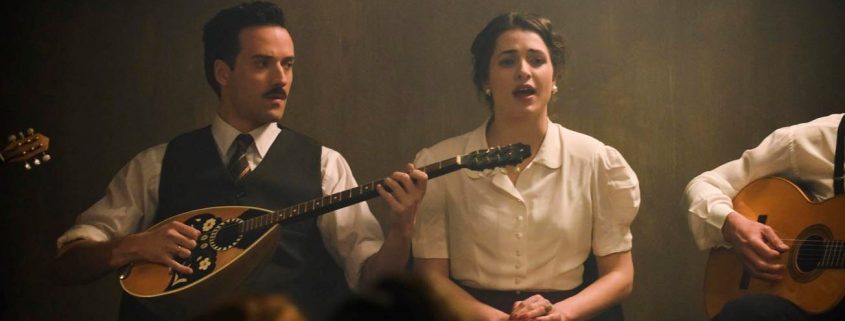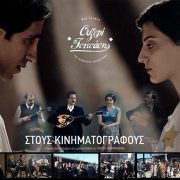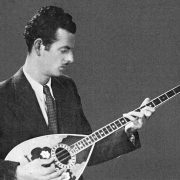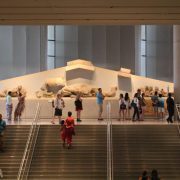In the movie “Ouzeri Tsitsanis”, which was released in December 2015, there are both the Tsitsanis songs and music, composed by the famous composer Themis Karamouratidis.
Below you can watch a video where the composer (Themis Karamouratidis) and the director (Manousos Manousakis) talk about the film’s music. If you would like to listen to the video and read the dialogues in Greek at the same time, click here. A good listening exercise!
For those of you who prefer the English translation of the dialogue, you will find it here below, under the video.
Vassilis Tsitsanis is one of the most important composers, musicians and singers of “laika” songs of the 20th century. He was born in Trikala (central Geece). He went to Athens to study Law, but finally he was drawn into a musical lifestyle. Tsitsanis arrived to Thessaloniki in 1938 as a soldier. There he met his wife, Zoe Samara. During the German Occupation, he opens an “ouzeri” with the collaboration of his brother in law, Andreas Samaras. There someone could meet all the different kind of persons living in the city: security battalion officers, Resistance fighters, Germans, Jews. In this “ouzeri”, Tsitsanis plays music and writes new songs. According to him, he wrote his best songs during the period 1938-’45 . (you can listen here to one of his hits ). The difficulties inspire the composer. In 1946, he returns in Athens where he records those songs.
Click here to listen to one more song, while reading the text.
Manousos Manousakis (director): We started recording the music of the film “Ouzeri Tsitsanis”. It’s our first day…
Themis Karamoratidis (music writer): …and we are about to make what was on paper to
come true. “Ouzeri Tsitsanis” talks about the forbidden love between a Jewish girl and a Christian in the city of Thessaloniki in 1942…
M.M.: …and through this difficult relationship, we see the Jewish community of the time and its extermination by the Nazis.
TH.K.: Of course in all this, there is the atmosphere of Vassilis Tsitsanis and his music, as part of the movie takes place at the “Ouzeri Tsitsanis”.
M.M.: The whole city of Thessaloniki passes by the “ouzeri”: from the betrayer to the resistance, from the millionaire to the porters. This is our background, our scenery. Tsitsanis observes his time and creates.
TH.K .: The basic needs of the film are basically divided into two main axes: first, we wanted to represent the “Ouzeri Tsitsanis’’ and clear the Tsitsanis’ songs. I think it is interesting to hear how a song comes back to its first version, after so many adaptations, remakes and changes.
M.M.: Another important part of the music for Themis Karamouratidis was to create an emotional, atmospheric music.
TH.K .: I wanted to find an orchestra, a sound that covers the need of a high quality production, and at the same time has the “laiko” and the Greek element needed to represent this period and Greece of ’42, as well, and of course to present Vassilis Tsitsanis in the best way. We wanted that Vassilis Tsitsanis is present in the original music, that’s why a lot of motifs come from well known and beloved Tsitsanis’ songs. Music in the romantic moments of the movie “Ouzeri Tsitsanis” should be able to show the eroticism and tenderness that exists in the relationship of two young people and meanwhile to preserve the melancholy and the cruelty of the period when this love is taking place.
Regarding the hard scenes of the movie, the music was very demanding. There must be a balance between what the viewer watches and what he hears so that the music doesn’t sound more pompous than what is going on.
The scene that put me more in trouble, I think was the first time Nazis gather the Jews on the Eleftherias square. It was a scene where we had to say in an obvious way that something very difficult will take place, but without betraying the rest. The collaboration with Manoussos took place thanks to “Feelgood”.
M.M.: I had listened to his music and I liked it. I observed an authentic element that was easily usable in the movie we wanted to create.
Th.K.: Cinema haw its own codes that you need to follow. I think Manoussos was a key to this. The way we worked was for sure very creative.
M.M.: It is a magic thing how the music is connected to the picture, and this majesty is very successful.







